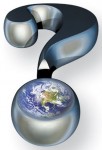Questions: Global and Local
1) So you watched Pants on the Ground and laughed. Did you notice that General Larry Platt had on a Justice for Troy Davis button, a National Action Network tee shirt, and Red, Black and Green wristbands? Message!
2) So when you heard that Yele had financial issues did it stop you from donating?
3) How come when you heard that Red Cross had bigger issues it didn’t stop you from donating?
4) How come the resolutions that people make for the new year usually end by Martin Luther King Day?
5) Wait, there’s a rapper named Wacka Flocka? So we naming ourselves after Muppets now?
6) If people read Dyson nearly as much as they hated on him, would they hate as much?
7) Why do you think King’s life work was about integration, when it was really about fighting poverty, war, and racism?
8 ) On Jersey Shore, why did the cops know Ronnie by name?
9) Why didn’t you even notice the Supreme Court eeked closer to putting Mumia to death?
10) Why the hell haven’t you offered your assistance to the cradle of our liberation struggle – Haiti?
Filed under: Ancestors, Food for Thought, General, Haiti, Questions



